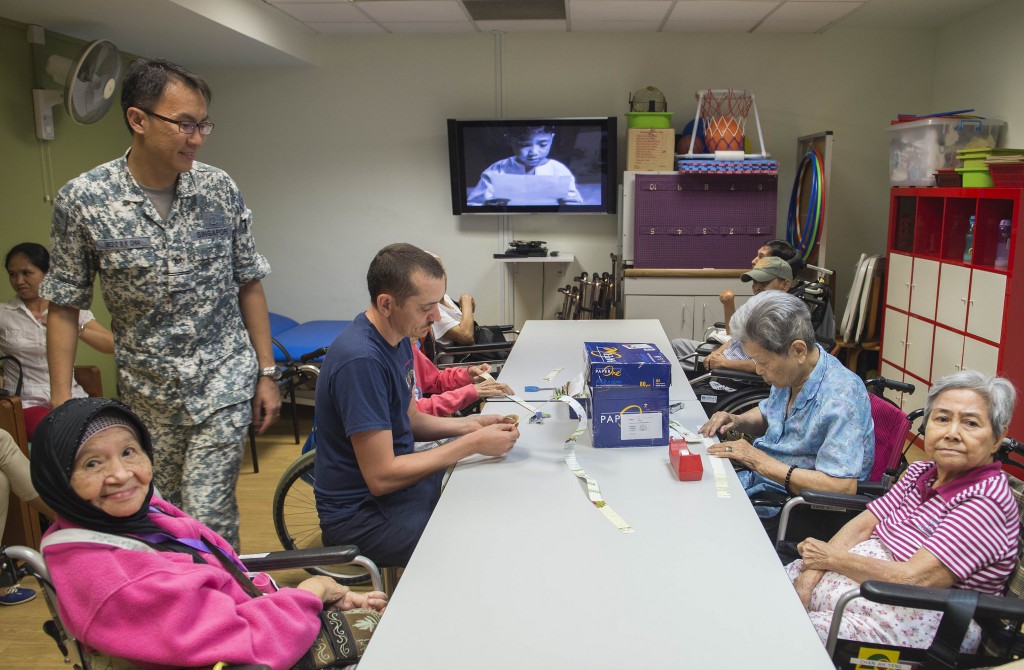IPS-NYC Roundtable on Open Collaboration
By Justin Lee and Wong Fung Shing
On 16 July 2016, IPS held a Roundtable titled “Open Collaboration to Identify Social Needs and Mobilizing Collective Solutions” in partnership with the National Youth Council. The session brought together policymakers, voluntary welfare organisation representatives, philanthropists, researchers and technologists to discuss new ways of collaboration especially for needs assessment initiatives. The participants were particularly interested in social causes ranging from end-of-life care, to disability, to helping vulnerable children and ex-offenders.
Open Collaboration for Needs Assessment
 Image by Flickr | iamdat
Image by Flickr | iamdat
Shaping policy and implementing public services for specific groups in the community requires an understanding of the needs and requirements of members of the groups, or clients. Public agencies, researchers and practitioners do this type of work, but often in isolation and not in coordination with one another. Not only are there are many benefits to a more open and collaborative way of doing this, it has become feasible given the easy access to online platforms and easy-to-understand needs assessment frameworks.
Public agencies and researchers often engage multiple stakeholders for consultation, and one might wonder how an open collaboration system would look like in contrast. Such a system would be supported by technology, with collective knowledge sourced and produced via online platforms. The key idea is to democratise the entire process of knowledge acquisition and sharing. The archetypal examples of open collaboration are Wikipedia for the purpose of encyclopaedia writing and the open source movement for software development. Such collaborations rely on individuals who have a common goal but with no central party coordinating their initiatives. While there is a clear objective and purpose for the participants, their involvement depends on their own interests, abilities and availability. In the context of social services, there is untapped potential for participants (including all stakeholders and clients) to collectively collate, analyse, produce and disseminate knowledge about client needs and service gaps. However, for the information to be easily accessible and for it to be of any use, there is a strong need to manage and coordinate the complex knowledge work involved. The Stanford Social Innovation Review provides a very good summary of what are the necessary conditions to achieve collective success.
Theory of Change and Collective Impact
Once social needs are well understood, multi-actor collaborations or “collective impact” projects can be initiated to address wicked problems that individual organisations cannot resolve on their own. The Theory of Change and logic model frameworks were also introduced during the session to show how it is possible to devise a precise strategic blueprint to help consolidate and coordinate the complex interrelated actions and roles of multiple partners. Denise Liu from the Social Collaborative — a network of skilled volunteers — demonstrated the utility of a Theory of Change framework for strategic planning, programme evaluation and as a communication tool for stakeholders. Desmond Wong, programme manager of EQUAL-ARK — a VWO that uses horses as therapy and engagement tool for youth-at-risk and those with special needs — recounted how the Theory of Change exercise facilitated by the Social Collaborative has helped EQUAL-ARK in strategic planning across its various programmes to achieve operational clarity, investor value and even secure funding for its programmes through the process.
The Social Collaborative
Participants of the roundtable also signed up to various teams, either with specific focus on social causes (end-of-life, disability, ex-offenders, etc.), or joined a “backbone” network that hopes to provide knowledge management, information technology support, communications and volunteer recruitment functions to support these social causes. Amongst those who have expressed interest to participate in some form included NGOs, researchers from various institutes and even public servants. The teams that have been formed operate autonomously, but can seek guidance and support from others who have specific roles to play. The project will require the design of a collaborative network and governance structure in order to succeed and this will likely take a few iterations before getting it right.
 Image by Flickr | Naval Surface Warriors
Image by Flickr | Naval Surface Warriors
For more information on open collaboration in social services needs assessments, read this IPS Commons essay by Dr Justin Lee. Please contact him at decb64_SnVzdGluLmxlZUBudXMuZWR1LnNn_decb64 if you or your organisation would like to know more about this initiative.
Justin Lee is a Research Fellow and Wong Fung Shing is Research Assistant in the Society and Identity research cluster at IPS.
Download